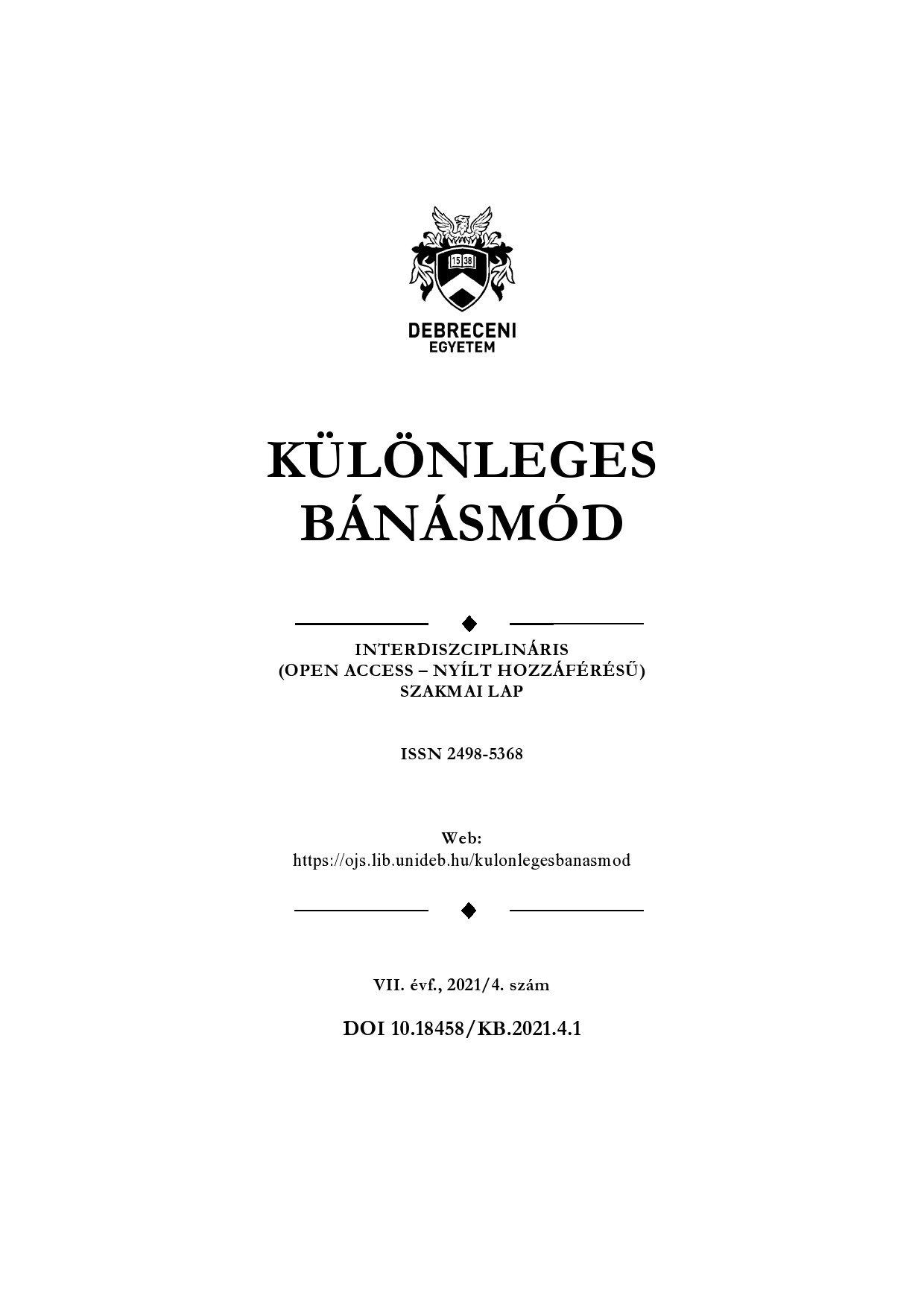A TANULÁSBAN AKADÁLYOZOTT TANULÓK NÉMET NYELVOKTATÁSÁNAK HELYZETE ‒ HAZAI ÉS NEMZETKÖZI KITEKINTÉS
Szerzők
Megtekintés
Kulcsszavak
Licenc
Copyright (c) 2021 Dr. Nemes Magdolna, Rózsa Helga

This work is licensed under a Creative Commons Attribution-NonCommercial-NoDerivatives 4.0 International License.
Hogyan hivatkozzuk
Absztrakt
Napjainkban kiemelt figyelmet kap a tanulásban akadályozottak idegennyelv-oktatása. A területre ugyanakkor nagyfokú útkeresés jellemző, a tanulók egyéni sajátosságai miatt még nem alakult egységes módszertan, ezért nagy szerepe van az oktatásban a pedagógusok kreativitásának, akik saját tapasztalataikból építkeznek. Ebből kiindulva két egymásra épülő tanulmányban foglalkozunk a tanulásban akadályozott általános iskolai tanulók idegennyelv-oktatásának kérdéseivel. Jelen részben a tanulásban akadályozott tanulók német nyelvoktatásának hazai és nemzetközi helyzetével foglalkozunk, melynek fontos részét képezi azon nemzetközi kitekintés, amely néhány európai ország gyakorlatát (Németország, Ausztria, Svájc, Románia, Lengyelország, Oroszország, Észtország, Olaszország) mutatja be röviden. Emellett betekintést nyújtunk a tanulásban akadályozottak nyelvtanulását befolyásoló jellemzőibe és a nyelvoktatásra vonatkozó hazai szabályozásokba is.


 https://doi.org/10.18458/KB.2021.4.55
https://doi.org/10.18458/KB.2021.4.55